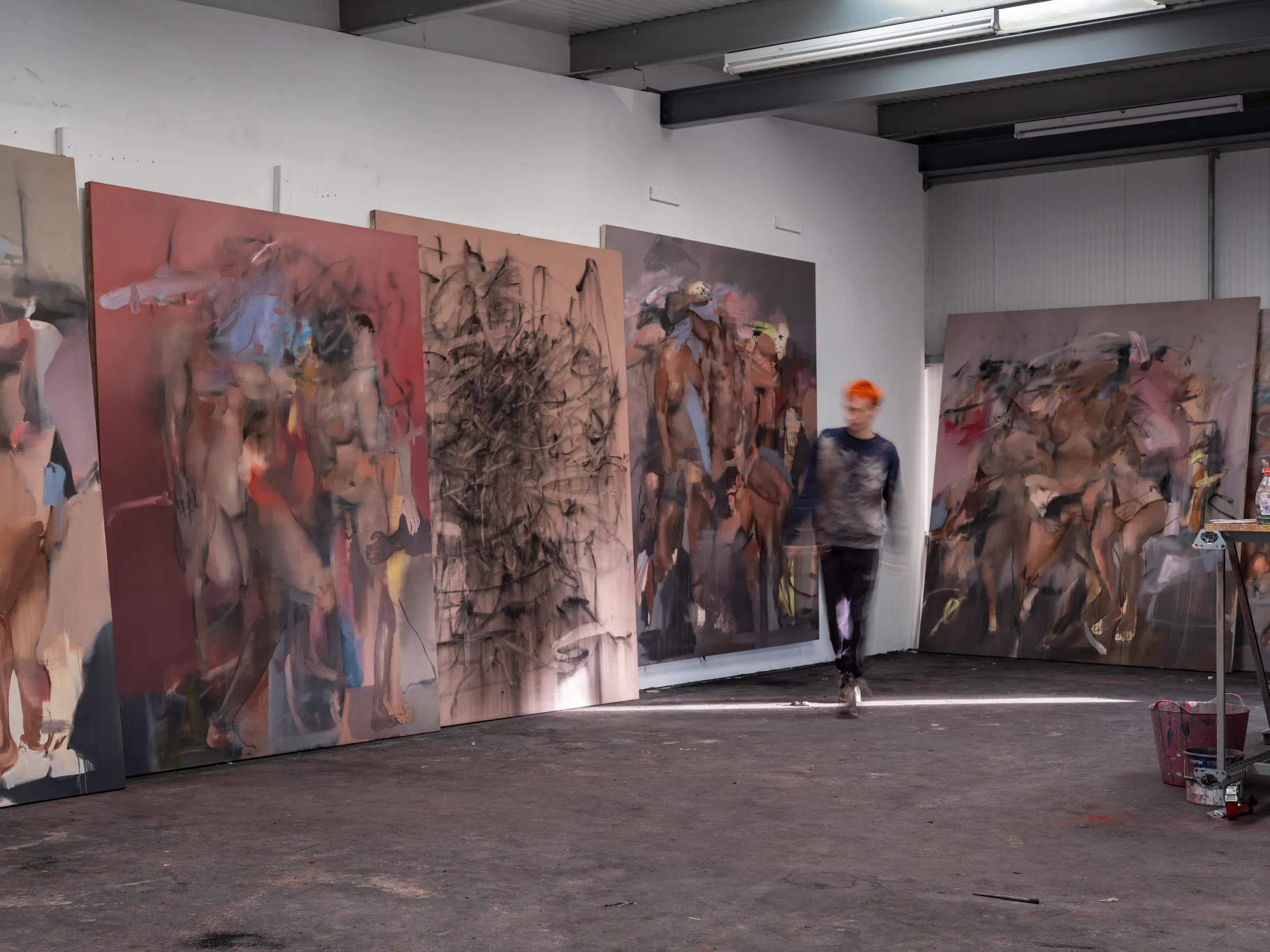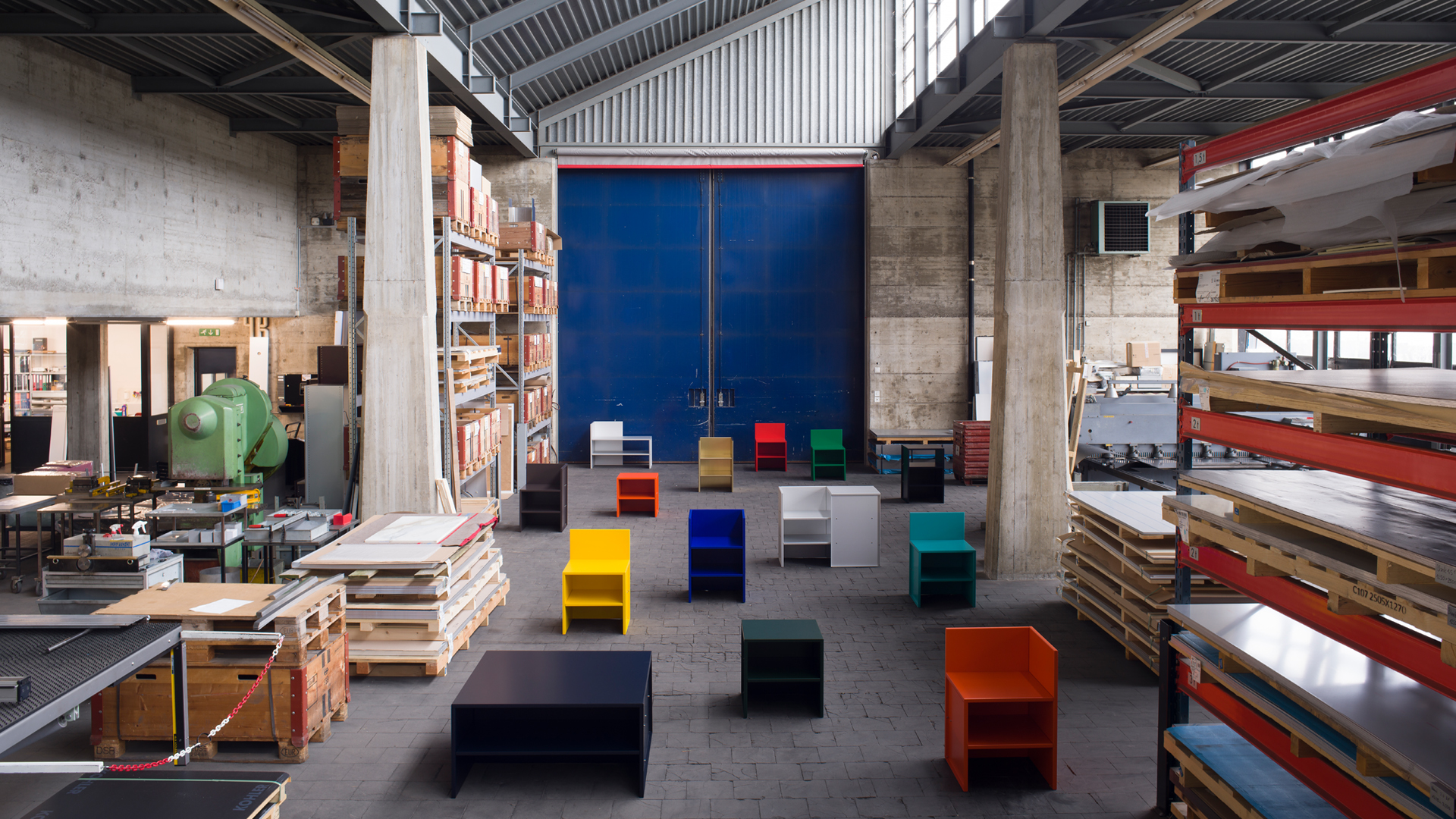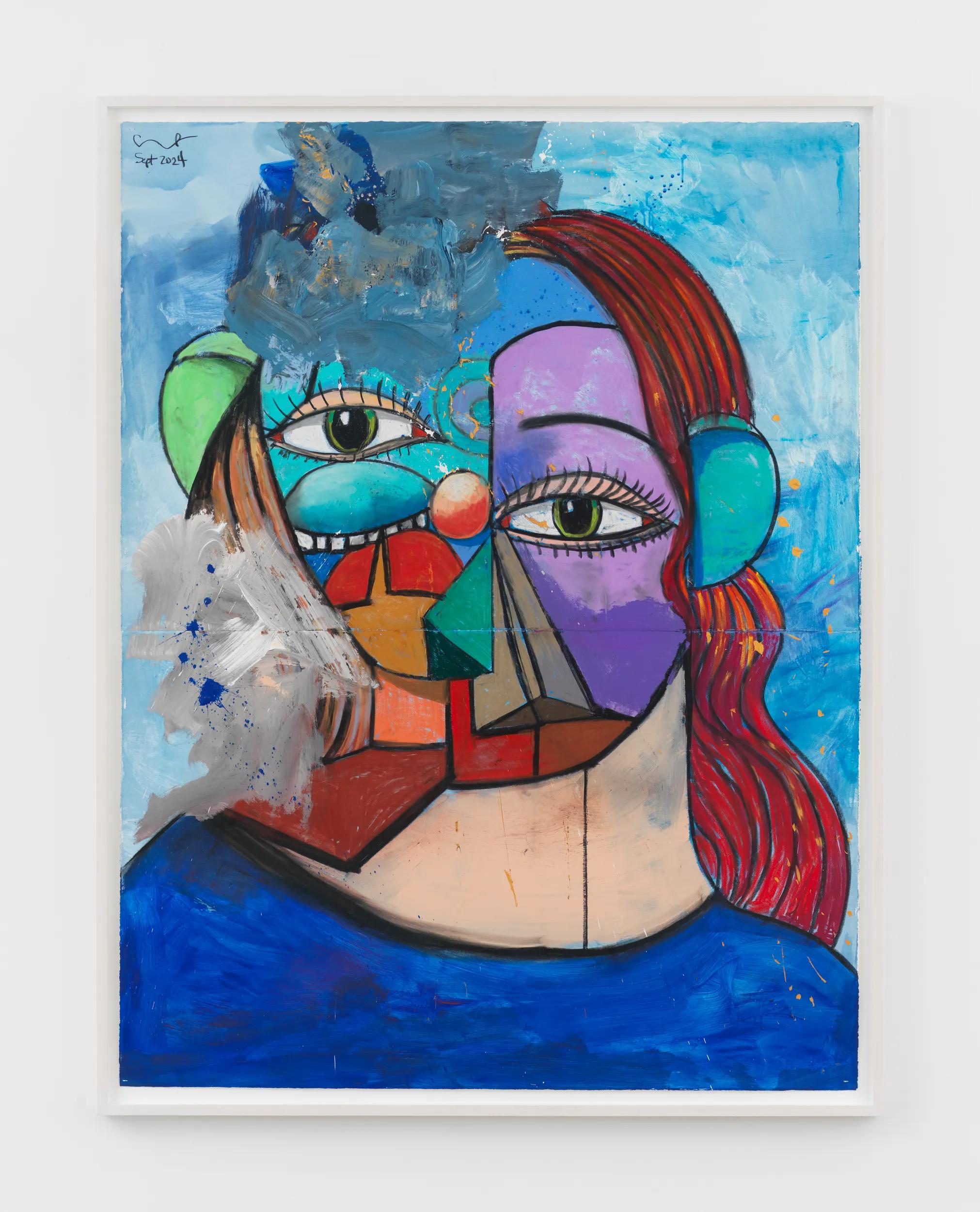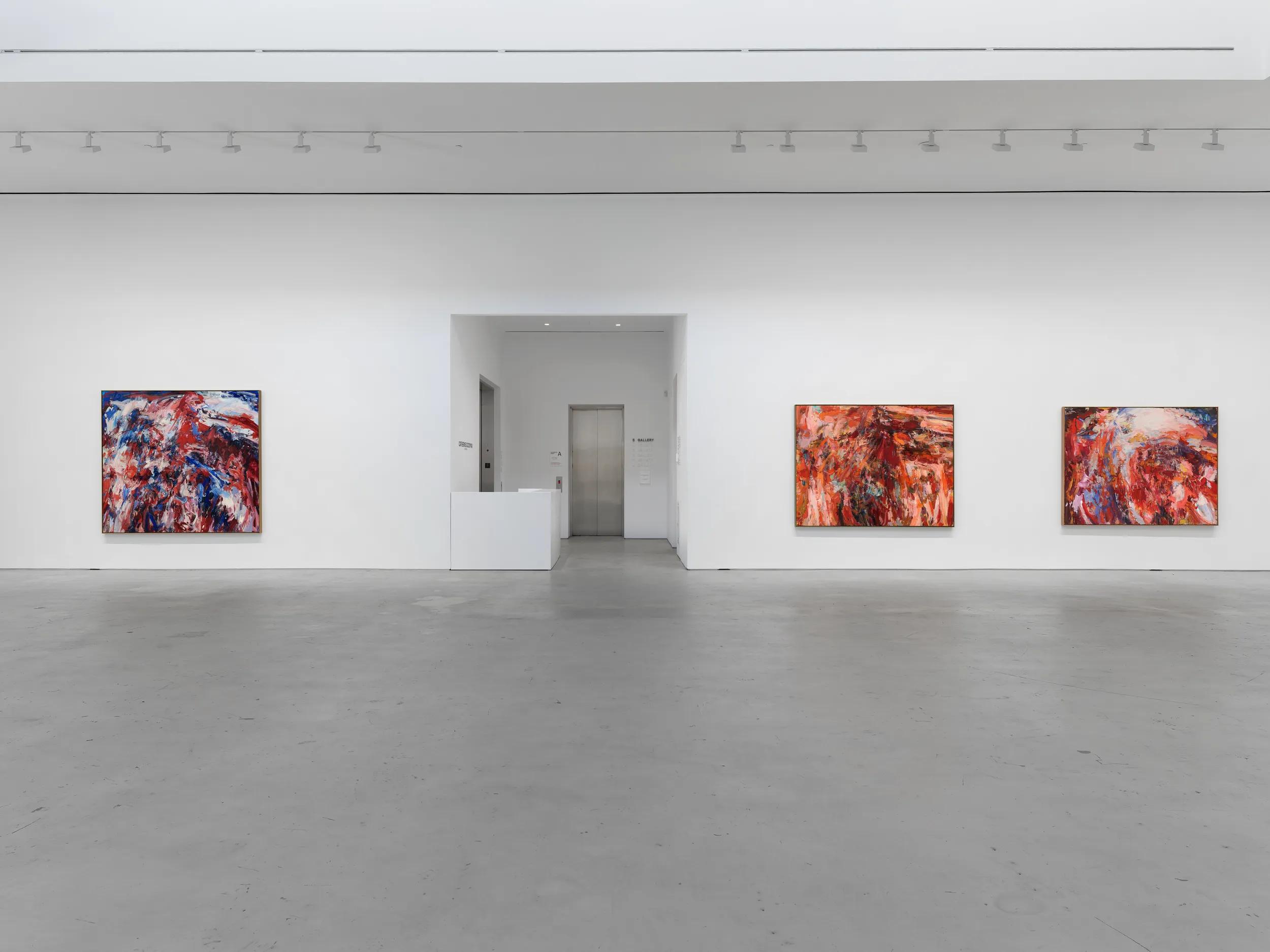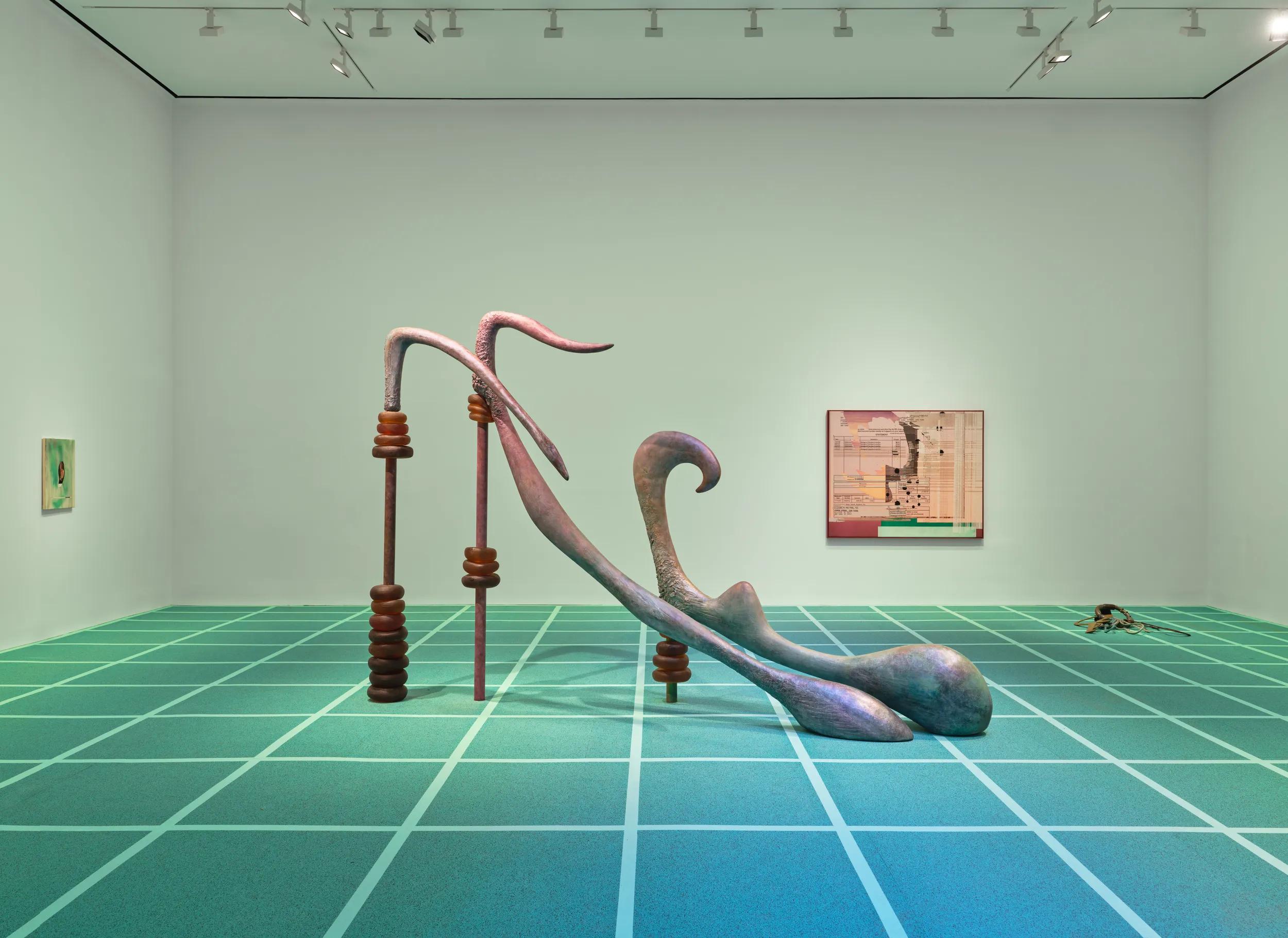
Cut and Fold
29 Apr - 24 Jun 2023
Wed – Sat, 10 am – 1 pm and 2 – 4 pm
Make, Somerset
About
‘Cut and Fold’ features a collection of works that explore the interplay between design and form, redefining surface qualities through the malleability and performative possibilities of materials. The works reveal a fluency of line, a sense of movement and a haptic sensibility. Subtle acts of sensing or bold intervention challenge the perception of works in clay, wood, metal, leather, paper and textile.
Ceramicist Ashraf Hanna uses space as a key component of design; three-dimensional patterns are achieved through exposure and concealment. In this new body of work, Hanna’s monochrome palette focuses on the relationship between line, shadow, and space in a group of cut and altered forms. Intrigued by the material qualities of clay, Olivia Walker works primarily with porcelain to explore the organic and decaying through the build-up of complex surfaces. Starting with a vessel thrown on the wheel, Walker then intervenes, carving, assembling, and disassembling. Precise forms, later covered in paper-thin accretions, enable the contrast between rough and smooth, completion and collapse, and internal versus external spaces to manifest.
Max Brosi’s organic works turned in green wood, accentuate the blending of interior and exterior curves. His hand carved Edge Vessels feature textures characteristic of ripples on the ocean’s surface, emulating the lights reflection. Working with oak tanned leather across a range of scales—from handheld objects to large floor standing works—Frances Pinnock’s unlikely forms appear to balance in space. Her work explores the dichotomy between tension and release, between formulaic and intuitive movement and between motion and stasis. Hannah Robson’s textiles amplify the elemental changes in environments, the interplay of light and shadow on a surface and subtle shifts in density and texture.
Helen Carnac’s vessels are made by folding, unfolding and re-folding very thin copper into forms, before they are coated with layers of vitreous enamel and fired at temperature. Carnac’s new series of works, titled Ammil, draw upon an old local Devon word that refers to the coating of glistening ice on grass, leaf, and stone when freeze fast follows thaw. Donna Lynch (Studio Ashay) creates textile works, intricately layered, pleated and appliqued in silk chiffon and satin. Understanding the relationship between movement and shape, her pieces suggest a fluidity and confidence of line. Lynch’s two-dimensional, framed material studies reveal a process of deconstruction and reconstruction, an unpicking of a tailored, formal approach towards raw, organic explorations.
About the Makers
Ashraf Hanna Ashraf Hanna is an Egyptian born artist, currently working in Pembrokeshire, West Wales. Working with the vessel to explore relationships between profile, line and space, he examines the juxtaposition of sharp lines and soft curves, through a process of hand building. Starting each work from a simple pinch pot, Ashraf then builds the form using soft slabs of clay. When it is leather hard, the form is refined using metal kidneys and then biscuit fired. A series of ultra-refined colored clay slips (terrra sigillata) are sprayed on the form, which are then re-fired and re-applied numerous times to create depth and highlight the surface texture.
Ashraf Hanna initially studied theatre design at Central Saint Martin’s London, UK, before discovering clay and embarking on a career in studio ceramics. Hanna developed his practice before completing a master’s degree in ceramics and glass at the Royal College of Art, London, UK. Hanna’s work has been acquired by the Victoria and Albert Museum, London, UK and the Fitzwilliam Museum, Cambridge, UK. In 2018, he was selected by the Michelangelo Foundation for Homo Faber in Venice, Italy, where he was included in the Best of Europe exhibit which showcased works by 150 artist-artisans.
Olivia Walker Devon-based ceramicist Olivia Walker’s thrown forms are layered with thousands of individually applied fragments of clay. Fascinated by the intersection between the man-made and natural, Walker allows her organic accretions to spread out—eating through or expanding over the vessel form beneath, resembling fungus, coral and bacteria as they accumulate.
Walker completed a Masters in contemporary craft, studying under celebrated ceramic artist, Magdalene Odundo, at the University of Creative Arts in Farnham, UK. She simultaneously completed an apprenticeship with renowned studio potter and writer Julian Stair. Her work is held in both public and private collections throughout the UK and worldwide. Recent featured publications include British Vogue, The Evening Standard and The Financial Times (How to Spend It).
Max Brosi Max Brosi lives and works in the Northwest of Ireland. Pushing the limits and capabilities of the wood lathe as an artistic tool, Brosi uses locally sourced woods—ash, spruce, oak, cypress, leylandii—which he turns whilst green. Linking all his diverse forms is his preoccupation with texture—the distortion and movement of the warped wood breathes life into the starkness of geometric form, bringing with it a dynamic energy.
After training as a furniture designer at The Furniture College, Letterfrack, Ireland, Brosi’s work expanded to boat building and surfboard construction. Brosi specializes in sculptural forms, turned, carved and sandblasted from green oak, often in combination with rusty steel elements. Since 2014, Brosi’s work has earned several Irish and international accolades, including winning the woodturning category of the RDS (Royal Dublin Society) National Craft Awards in Ireland and receiving an Excellence Award at the American Association of Woodturners’ symposium in Pittsburgh PA. His work is included in several public and private collections and has been exhibited in the UK, Germany, Italy, Dubai and the USA.
Frances Pinnock Frances Pinnock is a London based artist with a practice encompassing drawing, sculpture and movement. Fabricated through a labour-intensive process of pattern cutting and hand stitching, Pinnock draws material and making references from backgrounds in puppetry and accessories. Oak tanned leather is a core medium within her work, acting as both a conduit and container for space, facilitating a thinking that oscillates between two and three dimensions.
Frances Pinnock studied model making at the Arts University Bournemouth, UK and Sculpture at the Royal College of Art, London, UK. Following her studies, she trained in hand sewn shoemaking and worked in bespoke leatherwork, developing the skills that influence her current practice. She has exhibited her work in both the UK and US and is an award recipient of The Leverhulme Trust, Arts Council England, UK and the Queen Elizabeth Scholarship Trust, UK.
Hannah Robson Weaver Hannah Robson works from her Leeds studio exploring the spatial qualities of textiles: how they can affect and form space, change atmospheres, filter and reflect light. Using an experimental approach to unconventional materials such as metal wire, plastic, yarns and horsehair, much of her work involves constructing three-dimensional forms, exploring how threads can escape the traditional vertical and horizontal pathways imposed by the loom. Focusing on individual thread pathways through cloth, Robson finds opportunities for yarns to break away from woven surfaces, taking alternative routes through space and joining together in three dimensions.
Having studied woven textiles at Winchester School of Art, UK and at l’ENSCI in Paris, France, Robson undertook a MA Degree at the Royal College of Art, London, UK in 2016. Robson was awarded ‘Developing Your Creative Practice’ funding by the Arts Council in 2021, which has fuelled a project that’s grown her understanding of the manufacturing heritage and textile history of West Yorkshire. Alongside her studio practice, she is a Lecturer in Woven Textiles at Bradford College, Bradford, UK.
Helen Carnac Artist, maker and curator Helen Carnac set up her London studio in the early 1990s, developing projects using methodologies that are rooted in an acute awareness of physical location, place and working practices. In 2020, Carnac moved from London to a 17th-century farm in West Somerset, where the farm’s outdoor spaces is evident in her new work. Her work explores the explicit connections between material, process and maker, with expertise in the combination of vitreous enamel on metal. Understanding the attributes of a material—density, malleability, patina, corrosion, tensile strength and oxidization—allows Carnac to test the attributes of another.
She is a Fellow of the Royal Society of Arts and a member of Artquest’s advisory panel. Carnac’s previous exhibitions include: Holding Space: Contemporary Enamel Vessels, Springfield Museum, Missouri, USA (2023); Like Paper, Solo exhibition, Galerie Noel Guyomarc’h, Montreal, Canada (2022); Impertinente, Musée des Beaux-Arts de Limoges, France (2022); UK Pavilion at the 10th Cheongju Craft Biennale, Crafts Council and British Council (2017).
Donna Lynch (Studio Ashay) Based in Frome, Somerset, designer Donna Lynch’s informal ready to wear collection focuses on traditional pattern cutting and bespoke tailoring techniques, like any true fashion and textile atelier. In keeping with her wider ethos, the pieces are left raw-edged and unfinished. Embracing the prospect of refitting and altering, the collection works against the thought of seasonal fast fashion, instead creating clothes that work in all seasons, often repeating cuts in different textiles. Inspired by different cultures and modern day living, Lynch has based her hand-crafted pieces on the past, the present and the repetition of nature.
Donna Lynch studied at the London College of Fashion, London, UK, Chelsea College of Arts, London, UK and the Royal College of Art, London, UK before working with designers in London, Paris and New York.
Image: Installation view, ‘Cut and Fold’, Make Hauser & Wirth Somerset, 2023. Photo: Dave Watts
File downloads
Download press releaseInstallation views



















1 / 8
Current Exhibitions
1 / 12






